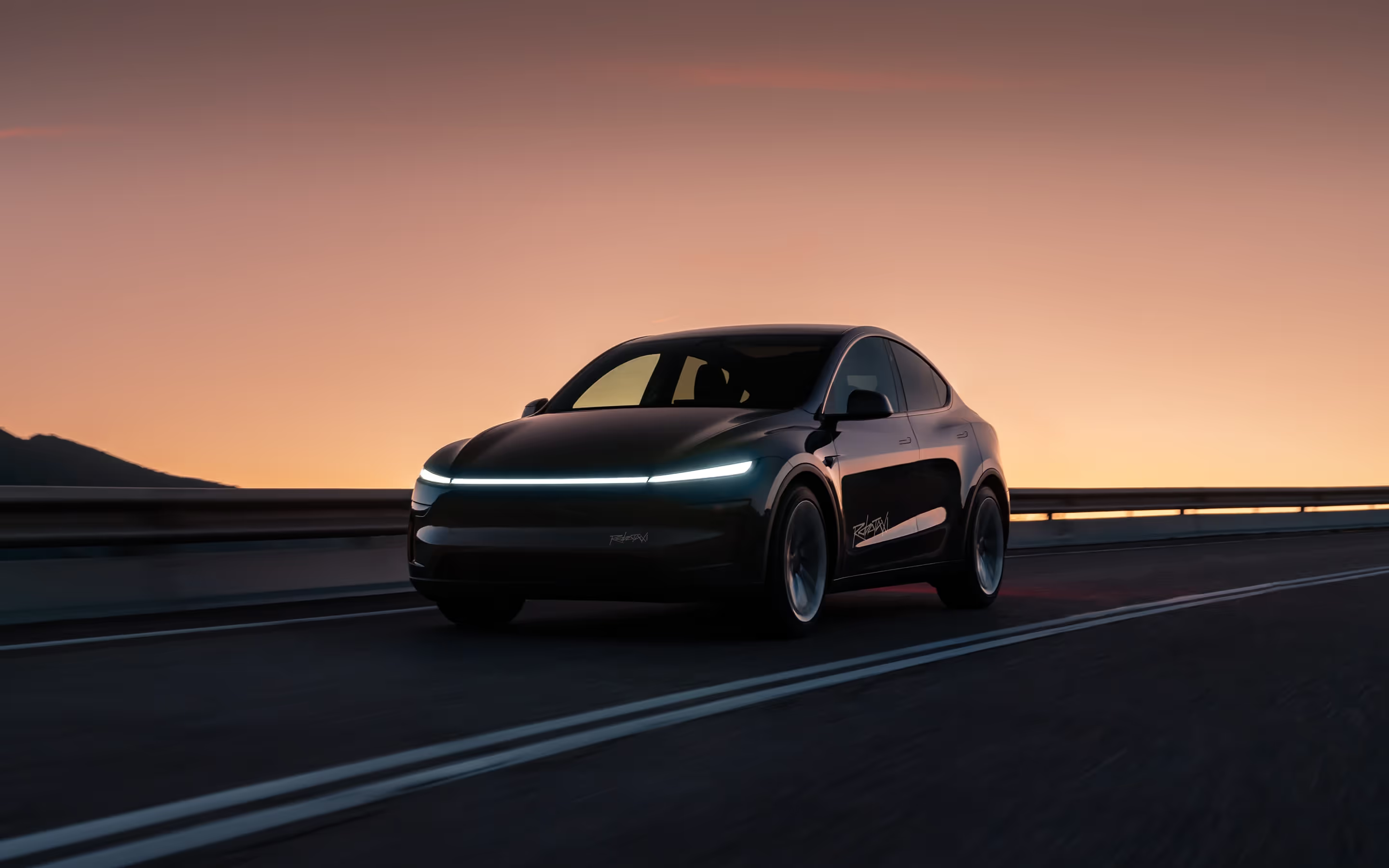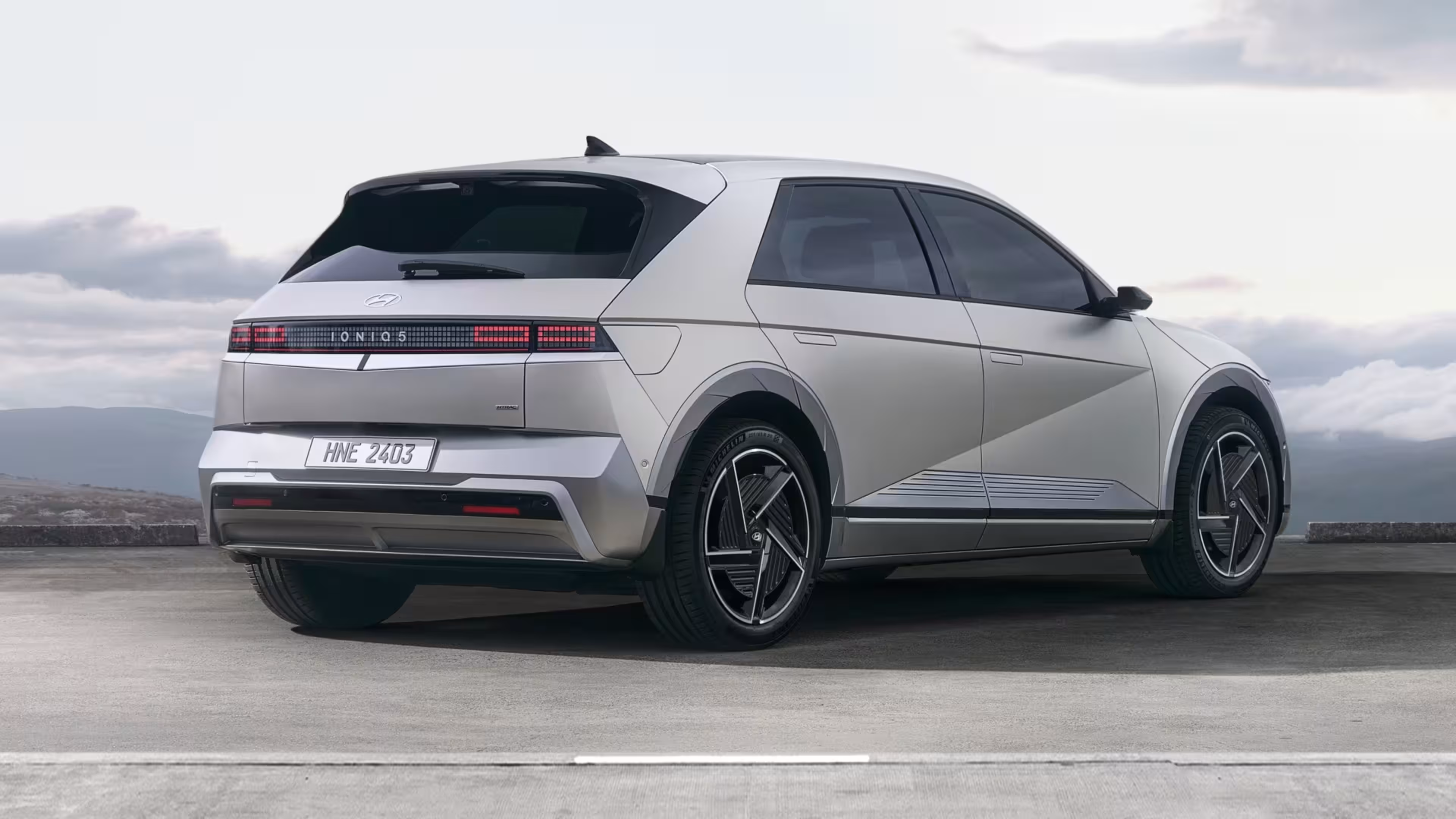In recent months, there have been several headlines about major rental car companies moving away from electric vehicles. Hertz announced plans to sell around 20,000 EVs - primarily Teslas - from its U.S. fleet by the end of 2025. This came just two years after Hertz made global headlines with the announcement that it would purchase 100,000 Teslas, seemingly marking a new era for EVs.
Rental giants like Sixt have also started replacing EVs with gas-powered cars. On the surface, EVs would seem like an ideal fit for rental fleets due to lower maintenance costs. So why are major rental companies moving away from EVs so quickly?
High Repair Costs
One of the main reasons rental car companies are moving away from EVs is due to the high repair costs compared to gas-powered vehicles. According to a study on EV repair costs for rental companies, repairing an EV after a collision in 2022 cost about 56% more than a gas vehicle on average.
This is primarily driven by the high cost of EV batteries, lack of competition in repair networks, and specialist skills needed to work safely on EVs.
Since rental cars suffer more wear and tear than privately owned vehicles, the repair costs add up quickly. Rental companies can't easily pass these higher costs onto consumers without impacting demand.
As a result, the total cost of ownership for EVs ends up higher than expected, even when factoring in the inherently reduced maintenance costs.
Lower Residual Values
One of the key challenges with EVs for rental fleets is the unpredictability of residual values - a cornerstone to managing any profitable vehicle fleet.
This means rental companies are taking a significant depreciation hit on EVs versus gas fleet vehicles. Consumer Reports found EVs had up to 50% lower resale values than comparable gas models after 5 years of ownership. Lower demand in the used EV market is likely contributing to these weaker residual values, however steep discounting from brands like Tesla is also having an outsized impact on residual values.
Companies like Hertz and Sixt were seeing residual values for their EVs plummet virtually overnight as the direct-to-consumer model of brands like Tesla provide for more dynamic price adjustments.
For rental companies focused on total cost of ownership, lower residual values can make EVs less appealing economically. This highlights the need for creative models like subscription that can help improve EV longevity and retention of value for rental fleets.
Lower Utilization Rates
One key challenge rental companies have run into with EVs is that renters tend to treat them more disposably than gas vehicles. According to a report by Mordor Intelligence, EVs at rental companies have utilization rates around 60-70% compared to 80-90% for gas vehicles.
Renters will often let EVs sit at a low state of charge between rentals because they know they aren't paying for fuel costs. This leads to more downtime and lower utilization as vehicles sit idle waiting to be recharged. Rental companies can't recapture as much value from their EV assets.
Additionally, renters are less inclined to plug in EVs overnight. So vehicles often return with lower charge levels than expected. Hertz reported 30% of EV returns had a charge under 25%, much lower than desired.
These utilization challenges make it difficult for rental companies to justify the higher upfront costs of EVs in their fleets. The vehicles aren't earning their keep at the same rates as gas cars.
Impact of Car Subscription on EV Adoption in Rental Fleets
Addressing High Repair Costs
Car subscription services can mitigate the high repair costs associated with EVs in rental fleets by establishing longer-term relationships with users. Subscribers, as opposed to short-term renters, might be more likely to treat the vehicle with care, knowing they will be using it regularly over a longer period. This behavior can lead to fewer damages and, consequently, lower repair costs.
Stabilizing Residual Values
Subscription services may help rental companies better predict and stabilize the residual values of EVs. Subscribers are typically locked into a contract for a set term, which spreads out the vehicle’s depreciation over a predictable period. Furthermore, by limiting the mileage usage in the terms of the subscription, rental companies can ensure the car retains higher value for re-sale or re-subscription at a later date.
Enhancing Utilization Rates
Rental firms have an opportunity to augment their EV utilization rates by expanding their offerings to encompass both rental and subscription services. While renters typically seek vehicles for immediate, temporary needs, subscribers resemble those who would otherwise buy a vehicle. This approach opens the door to an entirely novel market segment, fostering new business opportunities.
Subscribers, due to their continuous use of the vehicle, are incentivized to keep it well-charged. This enhanced sense of responsibility may drastically diminish downtime between charges, thus boosting the overall utilization of the vehicles. By encouraging adequate maintenance of charge levels through subscribers' extended usage, rental companies can potentially reduce idle time for their EV assets and subsequently bolster their revenue per vehicle.
Enhancing Accountability
Subscribers typically have a heightened sense of ownership and accountability, as they often keep the same car for an extended time. This perspective can encourage better care, resulting in reduced maintenance issues and retaining more of the car's value. In turn, companies can expect a higher standard of vehicle return, less wear and tear, and potentially lower reconditioning costs.
Incentivizing Proper Maintenance
Car subscription models inherently incentivize proper care and maintenance of vehicles. Since maintenance services are typically bundled in the subscription fee, subscribers can appreciate the value in ensuring the vehicle remains in top condition. The provision of regular maintenance without additional costs may prompt subscribers to schedule regular vehicle checks and promptly address any issues that arise, thereby preventing more significant problems in the future.
Strategic Fleet Optimization
Subscriptions offer rental companies data on customer preferences and usage patterns, which can inform strategic decisions about their fleet composition. Better understanding of customer behavior allows for optimizing the number and types of EVs on offer, potentially shifting the fleet towards vehicles with higher usage and customer satisfaction rates.
Creating Sustainable Fleet Practices
Subscription models can lead to the adoption of sustainable fleet practices. By monitoring and encouraging eco-friendly driving habits among subscribers, rental companies can not only enhance the efficiency and lifespan of their EVs but also appeal to environmentally conscious consumers.
In conclusion, transitioning to a subscription model presents a viable strategy for rental companies to overcome the challenges presented by EVs. By fostering a sense of ownership and loyalty, encouraging better vehicle treatment, and ensuring constant utilization, subscriptions could be the key to integrating electric vehicles more effectively into rental fleets.









